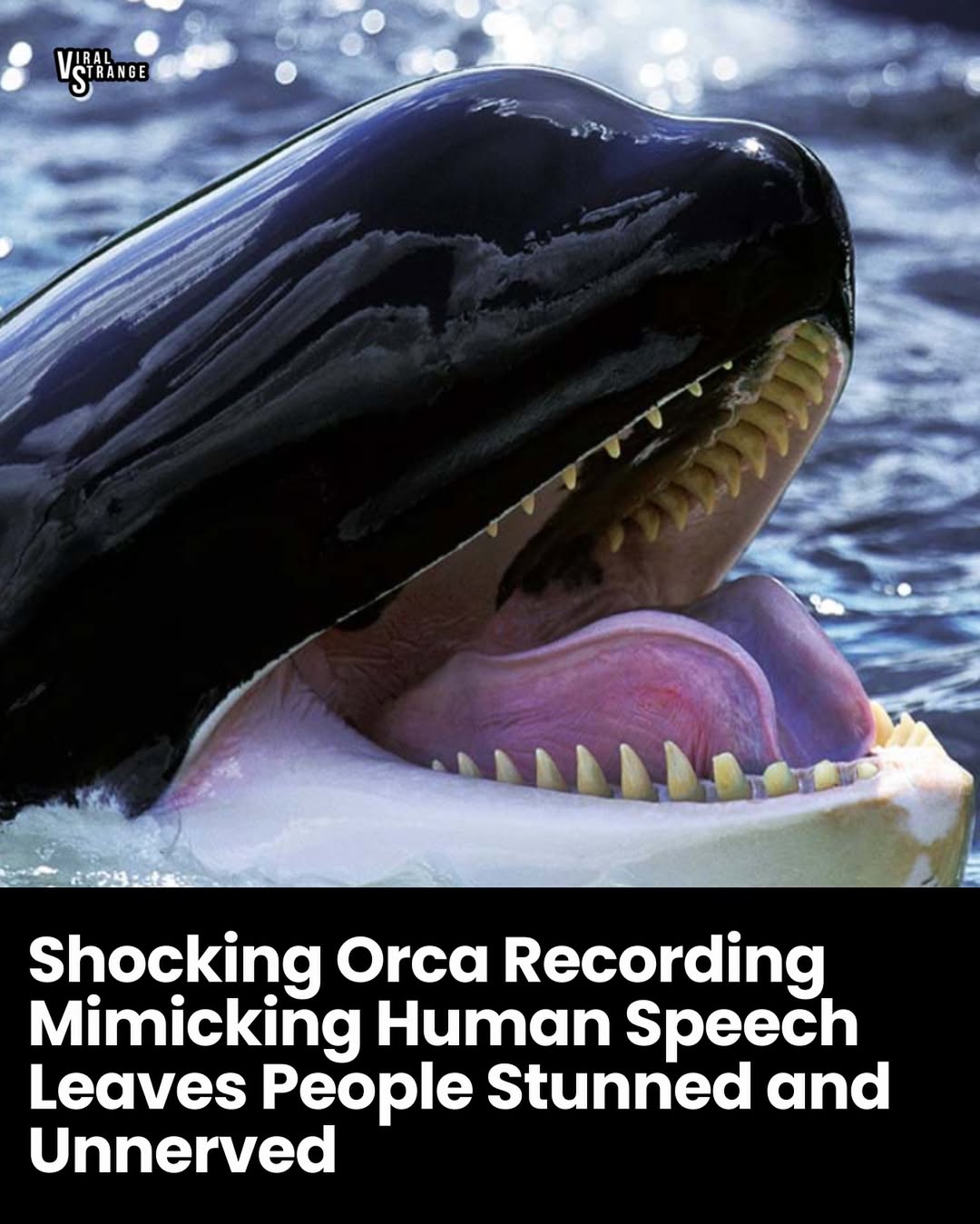Shocking Orca Recording Mimicking Human Speech Leaves People Stunned and Unnerved
Orcas might soon join parrots and other animals known for imitating human speech. A recent study observed a captive killer whale that can replicate human words and sounds.
Orcas and Human Speech: Study Reveals Killer Whale Mimicking Words
While some may find the voice eerie, certain phrases are clearly recognizable. More intriguingly, researchers suggest that this ability could explain why different orca pods develop distinct dialects. But the big question remains: does the orca understand what she’s saying?

Meet Wikie
The study focuses on Wikie, a killer whale residing at Marineland Aquarium in Antibes, France. What makes Wikie remarkable is her ability to imitate her trainer’s speech with little to no practice—sometimes even on the first attempt.

Orcas and Their Imitation Abilities
Mimicry is a well-documented trait among orcas.
“We wanted to test how adaptable a killer whale is when copying sounds,” said Josep Call, a professor at the University of St. Andrews and co-author of the study. “To truly test this, we presented them with something completely outside their natural repertoire—words like ‘hello,’ which an orca would never naturally say.”

Training Wikie to Copy Sounds
The study, published in Proceedings of the Royal Society B: Biological Sciences, was conducted by researchers from the UK, Chile, Spain, and Germany.
Using the same training approach, researchers prompted her to replicate three specific sounds made by her three-year-old calf, Moana.

Expanding Wikie’s Vocal Range
Next, researchers introduced Wikie to five new orca sounds she had never heard before—some resembling a creaky door or raspberry-blowing noises.
“We needed words that were simple but also distinct,” explained Call. “Choosing something too complex would have been unrealistic.”

Assessing Wikie’s Accuracy
Additionally, six independent researchers—who had no prior knowledge of the intended words—listened to recordings and matched them to the original sounds. Over 17 trials, Wikie demonstrated a rapid ability to mimic both human and orca sounds.
“What’s truly impressive is that despite having vastly different vocal structures, orcas can still produce sounds that closely resemble those of other species, including humans,” Call noted. Audio recordings of Wikie’s mimicry have since been shared on YouTube.
The Implications of Orca Imitation
In an even more surprising feat, Wikie successfully imitated a human making orca sounds on her first attempt. She also accurately mimicked two human words on her initial try, all while keeping her head above water.
“This may be the first solid evidence that killer whales learn sounds through vocal imitation, which could explain the dialects observed in wild orca populations,” said Call.
Can Orcas Truly ‘Speak’?
Despite the breakthrough, researchers caution against interpreting mimicry as actual speech. Call emphasized that Wikie is not “speaking English” and that there is no evidence she understands the meaning of the words she mimics.
Dr. Irene Pepperberg, a leading expert in parrot cognition at Harvard University, praised the study as “exciting” but noted a limitation. “A stronger test would be to see if humans could accurately classify the orca’s sounds without having the original models for comparison,” she suggested.
Other Animals That Imitate Human Speech
Parrots are well-known for their vocal abilities, but other species—including elephants, dolphins, beluga whales, and orangutans—have also demonstrated similar skills.
Each species uses unique mechanisms to produce these sounds. For example, Noc, a beluga whale, utilized his nasal cavities to mimic human speech, while Koshik, an elephant, placed his trunk inside his mouth to articulate words like “hello,” “no,” and “sit down” in Korean. Despite lacking human vocal cords, these animals continue to amaze researchers with their ability to imitate speech.






